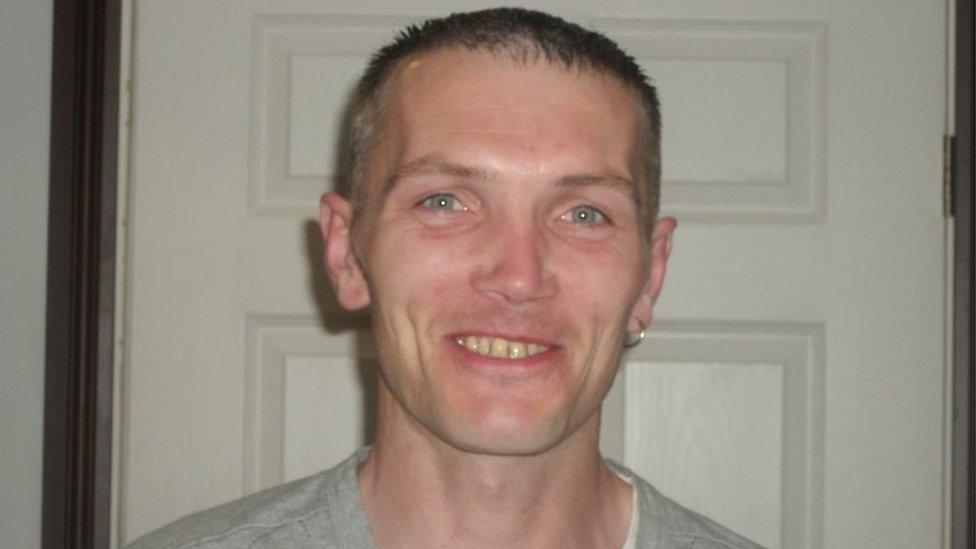Brett Lowe death: 'Missed opportunities' to prevent prison murder
- Published

Brett Lowe's family said they were "devastated" by his death
Prison staff missed opportunities to help a man who was murdered by his cellmate, an inquest has found.
Brett Lowe died on 18 July 2018, a day after the 43-year-old was moved to HMP Nottingham while on remand on suspicion of burglary and robbery.
Ferencz-Rudolf Pusok was handed a life sentence for the "brutal" killing in 2020.
A jury at Nottingham Coroner's Court found prison staff "consistently failed to execute their responsibilities".
The Ministry of Justice said it "will carefully consider the inquest's findings and respond in due course".
"Our thoughts remain with [Mr] Lowe's family and friends," it said in a statement.

Mr Lowe died at HMP Nottingham on 18 July 2018
Mr Lowe was found on the floor and unresponsive by prison staff at about 10:20 BST on the morning of 18 July, but despite receiving medical assistance from staff he died at Queen's Medical Centre in Nottingham hours later.
A medical cause of death was confirmed as "ligature and manual strangulation".
An inquest jury found the death was an "unlawful killing contributed to by neglect" and "was preventable had reasonable action been taken" by prison staff.

Ferencz-Rudolf Pusok was serving a 10-week sentence at the time of the attack
The jury heard an incident between Pusok and his previous cellmate "was not shared between prison officers or logged within formal channels", and though the cellmate was later moved it was not investigated further and Mr Lowe was moved into the cell.
During a sentencing hearing in 2020, a court heard Mr Lowe said Pusok tried to "throttle" him as he slept, but neither inmate was moved and both were told to "calm down" by a senior prison officer.
In a narrative conclusion the inquest jury found "no immediate action" was taken, with no formal record made and a handover that morning not referring to the incident.
Mr Lowe made further efforts to arrange a move, and again reported Pusok's "bizarre behaviour", but the incident was not investigated and "nothing was recorded to acknowledge the incident, its severity and the associated heightened risk".
"[He] took every opportunity available to him to alert staff to his situation and the risk to his own life," the jury found.
"Within this chain of events, prison staff consistently failed to execute their responsibilities in relation to [his] safety.
"The failure of any member of prison staff to intervene at any stage of the chain of events reflected systemic issues linked to leadership, staffing, training, communication, documentation and records management, risk assessment and culture."

Follow BBC East Midlands on Facebook, external, Twitter, external, or Instagram, external. Send your story ideas to eastmidsnews@bbc.co.uk.
Related topics
- Published20 November 2020

- Published26 October 2020

- Published21 July 2018
